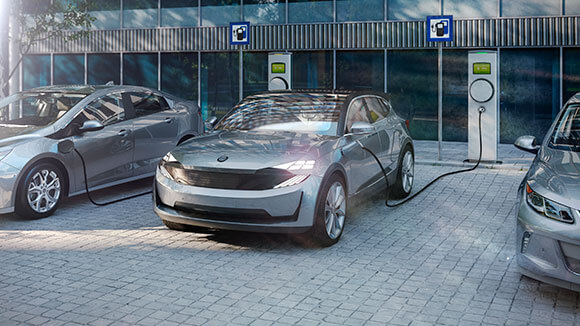Do electric cars hold their value?
23/03/2021 00:00:00by Mark McKenna23/03/2021 00:00:00Do electric cars hold their value?Bluedrop Services


The sales of electric cars have been on a steep uprise over the past few years, with a 180% increase in sales year on year. The governments initiative to ban the sale of diesel and petrol cars by 2030 has increased the popularity of electric vehicles even more. So we look to answer the question - with the rise in sales, do electric cars hold their value?
Depreciation refers to the difference between the value of a vehicle from purchase to sale. On average, cars depreciate in value by between 15% and 35% in the first year. The average new car loses around 60% of its value after the first three years. However, the depreciation of a car depends on mileage, condition and brand of vehicle. Typically, higher premium cars tend to hold their value for longer than standard models.
Do electric cars hold their value?
When electric cars were first available to buy, they did depreciate quite quickly. This is because there wasn’t a big market for people wanting electric cars. As electric car batteries have improved over time, the demand for electric cars has risen and so they retain their value for longer.
Premium brands that make electric vehicles hold their value for longer. For example, electric models from Mercedes and Tesla retain around 65% - 60% of their value after the first three years or 36,000 miles. This is mainly because owning a premium electric vehicle means you still have the luxury and high-end engines but are also helped by increasing ultra-low emission zones and rising congestion charges and fuel prices.
Alternatively, lower end and more affordable vehicles from the likes of Nissan, Toyota and Smart cars are more likely to depreciate more quickly. This is the same for diesel and petrol variations. These cars are more affordable because they use cheaper parts, meaning they are likely to ware more quickly, which impacts the value of the vehicle over time.
Do electric vehicles depreciate as fast as petrol/diesel models?
High-end electric vehicles manufactured by Tesla and Mercedes can retain their value for longer than most other electric cars. On average electric vehicles, do not depreciate any faster or slower than petrol of diesel models. However, the depreciation of value can change. The overall economy and health of the automotive industry are two important factors when valuing a car. However, as the government and car retailers put incentives in place to increase electric car sales, you may notice that they hold their value for longer.
Generally, if you want to cut costs overall, opting for an electric car or a hybrid petrol-electric vehicle may be overly cheaper than buying a petrol or diesel vehicle as the running costs of an electric vehicle is considerably cheaper.
With the sales of petrol and diesel vehicles being banned from 2030, benefiting from any government incentives to purchase an electric vehicle will help you to achieve competitive rates, resulting in less depreciation.
Best to lease or buy outright?
If you opt for leasing rather than owning your vehicles, then the rate you pay is based on the projected rate of depreciation. As well as lower monthly payments, you can benefit from new technology in the field. As you typically replace the vehicle every few years, you benefit from new advancements in battery performance and an increase in more models available, you also don’t have to worry about depreciation of value as you don’t officially own the car.
However, owning an electric vehicle outright means that the vehicle is yours to use as you wish. You don’t need to worry about going over the annual mileage allowance and can resell at any time.
Are electric cars more expensive than standard petrol/diesel cars?
Although the daily running costs of an electric vehicle is cheaper, the insurance is typically more expensive. Electric vehicles, especially their batteries, are generally more expensive to repair. It therefore makes sense for insurers to charge more for vehicles that may potentially cost more to repair.
However, as electric vehicles are a relatively new technology, there isn’t much data on them. The lack of data means that there isn’t a track record to calculate the total costs of repairs, which means insurers are overly cautious with their predictions and raised premiums.
As the rise of electric vehicles continues, electric car insurance is slowly decreasing. This is because more data is available on the cost of repairs, and as a result, the insurance reflects these costs.
Electric car insurance should reduce over time because they are generally more secure. Most electric vehicles are easily traceable and don’t have enough battery to travel for long periods, making them harder to steal. Also, more mechanics are trained in fixing electric vehicles, which also brings down the cost of labour for any repairs or maintenance.
Overall, it is likely that electric vehicles will become more competitive in their prices and insurance in the future, which will impact whether electric cars can hold their value. As we move closer to 2030, and with the rise in electric vehicles, we may see depreciation increase, but the insurances may be cheaper.
If you are looking to insure your fleet of electric car vehicles, speak to a member of our team who will be able to assist you.
Return to blog menuWant to find out more about Bluedrop's Motor Fleet Insurance?
Call our friendly team now for the right insurance cover - at the best price
+441489780491
Calls recorded for training and quality.



 Privacy and Cookie Policy
Privacy and Cookie Policy